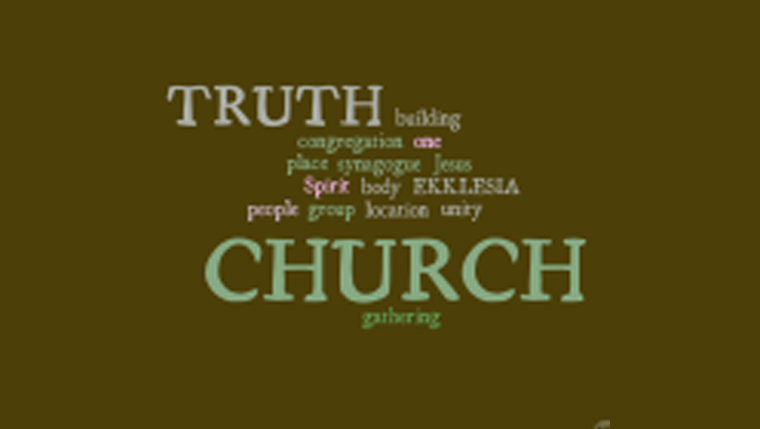Words matter. It seems that our culture is getting fuzzy about the words we use. But words are powerful and convey ideas and truth. Words like “church.” If we are careless about our words, we may be communicating something we don’t intend. I understand that meanings change with time, but I also want to be careful I’m not implying erroneous ideas. Especially if it affects how I live.
When I say “I went to church,” of course people will know what I’m talking about. They understand that I attended a gathering of people at a certain location. But if someone lacks Biblical understanding, I’ve just communicated to them that church is something “out there,” a place that you go to. And we know that’s not true.
Ekklesia, the Greek word we translate as church, refers to an assembly of people or what we could also translate as congregation. It always refers to people and not to a place or building. What if we called our buildings, “the campus” or “our gathering place” or one of a hundred different things? And what if we only referred to us as the church. WE are the church, whether we’re on Main Street, or having dinner at a café, or serving in a shelter. What would happen if we were really careful with our words? Would we eventually feel more connected to each other, because we understood that we together form a body that is called the church? Would we value each other more? Could we fellowship with other “church bodies” more readily and notice differences of style and culture less? Would we have a greater sense of love and community because we are more aware of WHO we really are - and not just WHERE we are?
I know old habits die hard, but I wonder…
Words matter because they remind me, as well as those around me, of the truth. I’m learning to be more aware of the church as well as my role within it. I want the world to see how awesome God is by how His church loves each other and loves them. I can’t be the church by myself. Neither can you. Let’s build each other up and be reminded of the truth.
So the church throughout all Judea and Galilee and Samaria had peace and was being built up. And walking in the fear of the Lord and in the comfort of the Holy Spirit, it multiplied. Acts 9:31








4 Responses